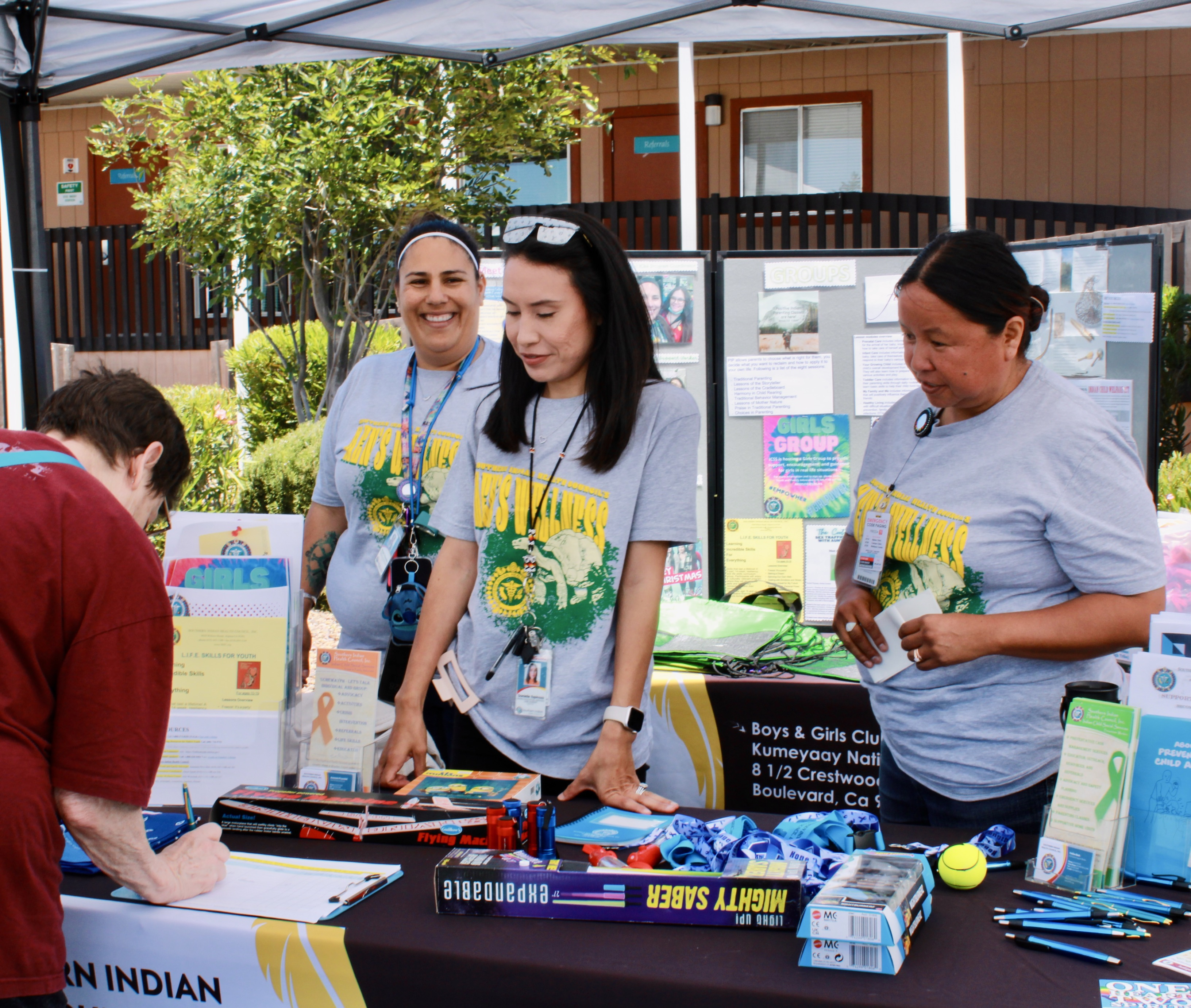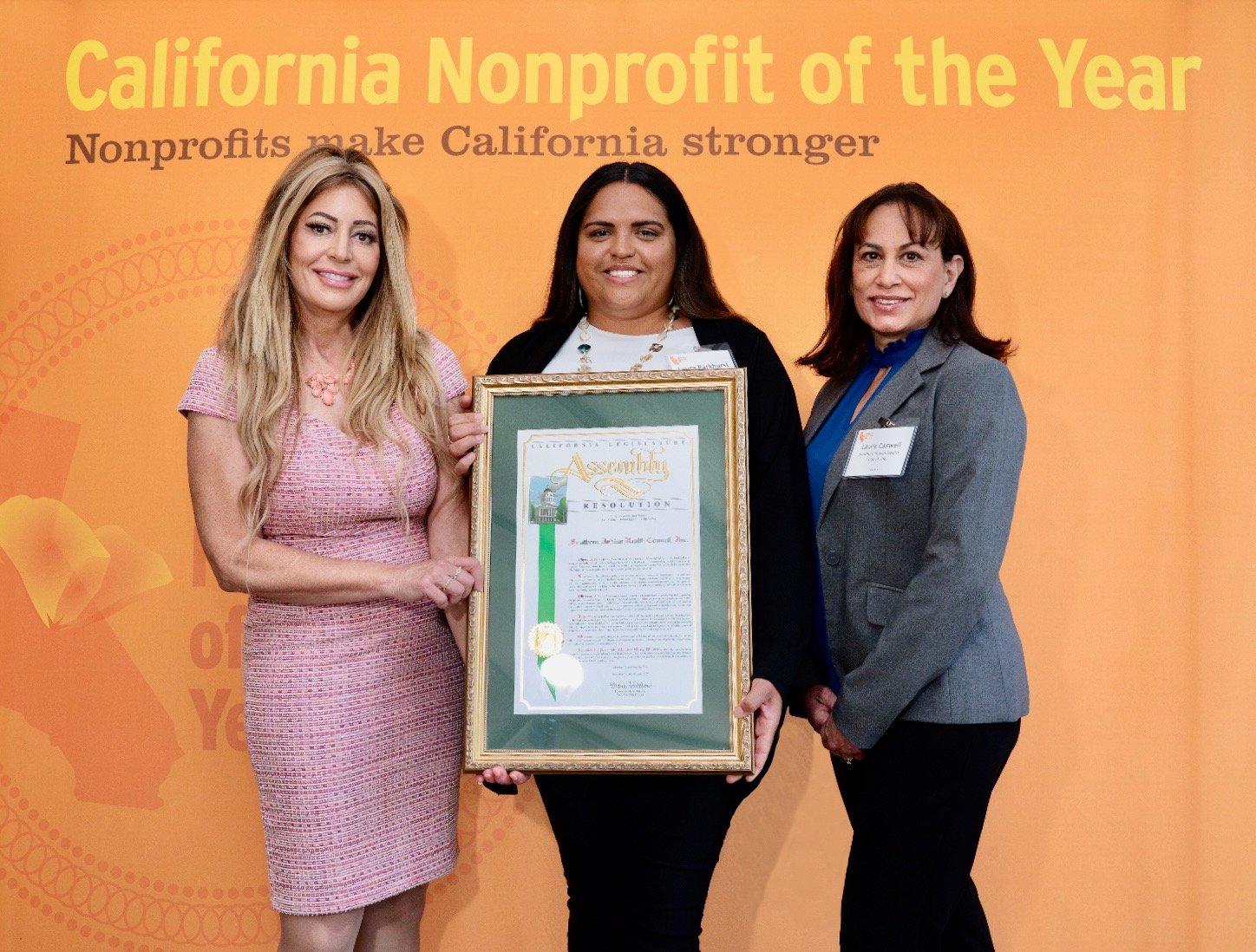1420 Kettner Blvd,
Suite 700
San Diego, CA 92101
(619) 860-2100

In the greater San Diego community, the Southern Indian Health Council stands as a beacon of health and community support for Native tribes and others across the region. Serving seven tribes, including Barona, Campo, Ewiiaapaayp, Jamul, La Posta, Manzanita, and Viejas, the Southern Indian Health Council is dedicated to safeguarding and enhancing the physical, mental, and spiritual well-being of Native tribal communities and the population beyond.
With a board comprising two representatives from each tribe, the Southern Indian Health Council serves approximately 5,000 patients across five locations in Campo, Viejas, Alpine, and Pine Valley. The council’s commitment extends across a wide spectrum of services, including medical, dental, optometry, family services, pharmacy, and community programs.
Those services received a boost when the Southern Indian Health Council was awarded a two-year $500,000 grant as part of the Conrad Prebys Foundation’s SHARE Initiative. The initiative provides unrestricted grants to health clinics that effectively serve communities needing improved health services – especially Indigenous, immigrant, and border residents. The initiative aims to ensure that excellent, culturally proficient healthcare is accessible to and in underserved communities. Grant recipients can use the funding in whatever way they think will be most effective for their organizations and the communities they serve.
For Southern Indian Health Council, which began as a satellite initiative of the Indian Health Council in Pauma Valley and which has since expanded its reach to rural communities across Southern San Diego County, the impact transcends conventional healthcare boundaries.
As part of their work to provide services for people experiencing domestic violence, they sought to provide services for children who had to be removed from a home. “Our first question was ‘How can we support these kids?’” said CEO Laura Caswell.
They partnered with the Boys and Girls Club of America, which had an existing Native Services program, to create the first Native Boys and Girls Club program in California. They began by providing homework support because many parents had difficulty helping their children with their homework. As a result, kids started coming home having finished their homework, and grades began going up.
They also began expanding young people’s perspectives by helping arrange trips outside the reservation.
“We took the kids to the trolley station, and they rode that thing from start to finish,” said Caswell. “They could not believe that they could get on the trolley and go anywhere they wanted.” “Some kids had never been to the beach. Some had never even left the reservation.”
Staff member Mary Johnson, who is a member of the Campo tribe, notes that building deep cultural bonds with the community is essential, especially given the prevalence of health disparities among Native Americans, which are compounded by food insecurity and the opioid crises.

To address these challenges, Southern Indian Health Council has established a wellness center offering AA meetings, therapy sessions, and outpatient care. Initiatives like cooking classes, fresh food distribution, and ingredient boxes help promote healthier living.
Despite challenges, such as the COVID-19 pandemic that isolated many, “We never shut our doors,” said Caswell. “We did a lot of virtual check ins, delivered meals on wheels, and so much more. Now we’re reminding people to come in and we’re able to let them know it’s safe. People missed a lot of care. We need to get people on the road to their health care.”
To do this, Southern Indian Health Council is conducting a wide-ranging outreach effort. Nathan Ball, who manages events and outreach, has been using social media to connect with younger members of the community, while acknowledging that large portions of East County residents don’t have reliable internet access. To reach these communities, the organization is designing large community events, including a women’s wellness event, a men’s wellness gathering, and the popular winter wonderland in Campo, featuring Santa Claus.
While the grant from the Prebys Foundation will provide a much-needed boost, Development Manager Jasmine Hall notes that additional funding will help support even more services. To that end, Southern Indian Health Council will participate in San Diego Gives for the first time this year, encouraging San Diegans to consider the organization when making their donation this year.
The organization’s evolution over the years has been remarkable, according to Mary Johnson. “I lived in Campo most of my life, and I’ve been going to this clinic since I was a little kid,” she said. "My mom went here. To see how it’s grown so much, how it affects my people and my family, is such a good feeling. We have so much to give to help the community.”

